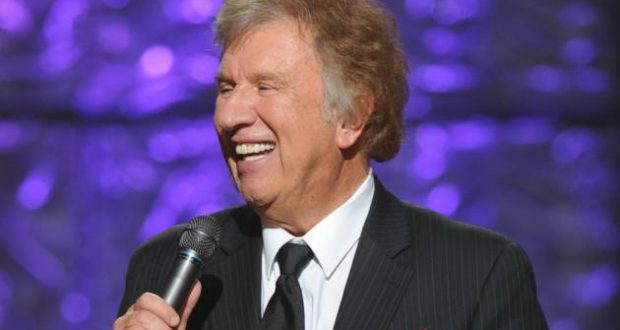Metro Voice interviewed Bill Gaither Wednesday, Nov. 7. The composer and singer is no doubt one of the central characters in the long and storied history of Christian music in the 20th Century. Having gained attention as a member of the trio named after him, The Bill Gaither Trio, he became more well-
known in the 1990s thanks to the Gaither Homecoming, videos and hundreds of songs that he and his wife Gloria wrote together. No doubt you recognize many and many more you’ve heard but have been sung by other artists. Favorites include his standard “He Touched Me.” But other popular songs include “The Longer I Serve Him,” “Because He Lives,” “The King Is Coming,” “Sinner Saved By Grace”, “Something Beautiful,” “It Is Finished,” and “Jesus, There’s Something About That Name.”
So powerful is the music and loved are the Gaithers, they sang at the funeral of Billy Graham.
I interviewed Bill Gaither on the phone and he immediately put me at ease with his homespun easy-to-know personality. He ended the interview thanking me for questions that were outside of the typical ones he is asked.
The Bill Gaither “Here and Now” tour comes to Wichita Friday night, Nov. 9 at 7pm at Central Community Church. For tickets and info go to their website.
MV: You’ve been serving the Lord through song for many years. What has changed during this time for you as a performer?
GAITHER: The mechanics. With computers and sound equipment and everything you can use now, compared to the old days, we kind of wonder how we use to do it. Even traveling with a nice bus with a bathroom and air conditioning. The best thing of getting together in the good ole days was acoustics and the buildings were much smaller. We thought 200 people was a big crowd.
I think of Jesus trying to communicate to 5,000 people on the sea of Galilee. I think “How did he do that without a microphone?” The biggest change has been in the mechanics.
MV: Has the audience changed?
GAITHER: In some ways but not much. Most of the people who come to gospel concerts are seekers, plus, fellow pilgrims on a journey. They’re coming to get some help on their journey. Music has always been a wonderful source of help. The biggest comments we get are people say, “Thank you for your music because it got us ‘through.’”
MV: Gloria often writes the music while you are the composer. It’s a collaborative project between the two of you. How has this worked as a team? What is your secret to working with a spouse?
GAITHER: First of all theologically and philosophically we’re drawing from the same well. We believe a commitment to Christ is call to discipleship and stewardship. I believe a follower of Christ starts with the word “stewardship.” You’ve got these gifts–physical stamina, intellectual ability, vocal chords: your voice. The next question is “how are you going to use these gifts?” We use ours as a team.
MV: What do you think when you hear one of your songs performed by a contemporary rock artist and you know it’s being heard by people who may never have heard it in a southern gospel style?
GAITHER: We’re always happy when something we’ve written is meaningful to someone else young or old. The biggest thrill is when you travel internationally like in Brazil and all of a sudden 8,000 people are singing in Portuguese or when we’re in Norway they’re singing in Norwegian. The same in Germany.
When you start singing tunes that God has given to you they become meaningful to people around the world. Those types of songs don’t know cultural boundaries.
MV: How do you know on stage, that you have connected with that audience?
GAITHER: Sometimes you think you aren’t connecting much at all then the next week you get an email thanking you for last week’s concert. Some nights it is more obvious. Crowds in Atlanta are different than crowds in Minneapolis. Poeople just express their love differently. Still that water runs very deep no matter where you are.
MV: Do audiences react or enjoy concerts differently today than when you started? Many Christian culture observers say that Christian music is more about entertainment today than true worship.
GAITHER: I heard that question in the 1950s. The beautiful thing about music is that when Jesus was born the angels started singing. Christians have music as a part of our faith more than any other faith has music as part of their worship.
In Handell’s messiah we sing, “And He shall reign for ever and ever.” People in LA and Boston are singing that as a statement of their faith. Others are just singing or playing it as a wonderful piece of music. But we serve a Christ and Savior who has produced this much art—whether an African-American spiritual or classical Handel piece or southern gospel tune or Appalachian preacher who has never been out of the mountains but is expressing their faith, or a rock and roller who just found Jesus.
MV: Would you consider any of your songs to be statements on contemporary issues? In times when the nation needs uplifting or is going through the throws of change, is that reflected in your songs? I’m thinking perhaps of anything you wrote around the time of Vietnam or the 9/11 attacks.
GAITHER: Absolutely, the times are reflected! Most songs we do are written out of reaction to what is going on in the world. It may be something recent that we’ve written. People think the country is divided today but it there has been division in the country for the last 20 years, not just the last 2 years. And there have been times of great division before. Our message is just: love God, love each other. That message never ends
There comes a time that we must say there are more things that unite us than divide us. That really shows up on the mission field. Christians on the mission field are not serving and asking what a person believes politically, they just want to know “do you love Jesus?” That’s what it boils down to. Not political or social. Just loving those who don’t know Jesus. It was especially strong after 9-11.
MV: In Israel several years ago, our tour guide Moshe said he loved your concert video from Jerusalem. He’s Jewish yet has all your music!
GAITHER: I’ve heard something like this many times before. Judaism is half of our theology and any Biblical scholar and Christian believers must connect old and new. We serve the same God.
MV: When you want to worship privately or listen to music in your own life, what do you choose?
GAITHER: Four-part male harmony. Plus, when I went to college I found a whole world of classical music. Why do they call them the masters? They were the craftsmen with harmonics. I like a lot of the pop stuff—a beautiful melody—Billy Joel is just a master. I don’t like loud screaming, though.
MV: Has there been a time when a personal experience either hindered, or helped infuse your creativity and ability to perform?
GAITHER: Absolutely. We are human beings and we’re subject to human experience. We don’t have a very good philosophy in our culture for loss. Look at our sports teams. The Chicago Cubs are real fans cause they went years without winning yet they still believed. It’s not all about winning. It’s also about losing. Jesus said we can’t look at it from an earthly standard. Jesus died–the world says he lost. We are human, we’re losing hair, hearing and notes as a singer. We just deal with it. Artists are artists. They’re tough. If you’re going to live the human experience you are acquainted with pain. How we react to it is the question and it really does touch what you write and sing about.
But, we know where our ultimate victory lies.
–Dwight Widaman is editor of Metro Voice.
 Metro Voice News Celebrating Faith, Family & Community
Metro Voice News Celebrating Faith, Family & Community 









